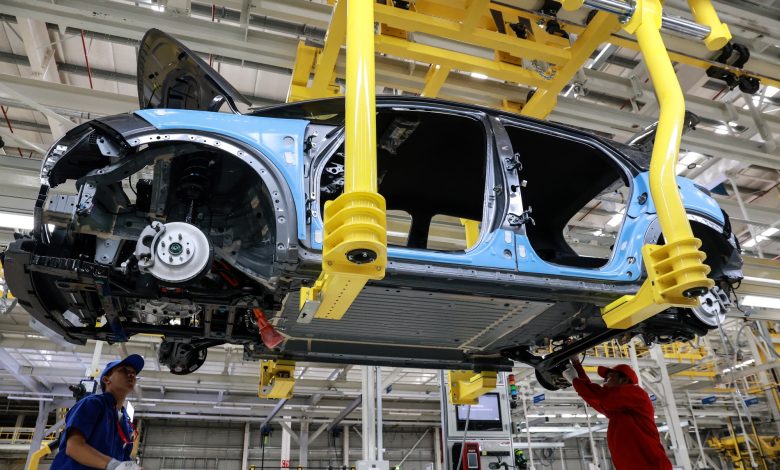China asks its carmakers to keep key EV technology at home

CHINA has strongly advised its carmakers to make sure advanced electric vehicle (EV) technology stays in the country, sources familiar with the matter said, even as they build factories around the world to escape punitive tariffs on Chinese exports.
Beijing is encouraging Chinese automakers to export so-called knock-down kits to their foreign plants, the sources said, meaning key parts of a vehicle would be produced domestically and then sent for final assembly in their destination market.
The instructions come as companies from BYD to Chery Automobile firm up plans to build factories in Spain to Thailand and Hungary as their innovative and affordable EVs make inroads in foreign markets.
China’s Ministry of Commerce held a meeting in July with more than a dozen automakers, who were also told they should not make any auto-related investments in India, the sources said asking not to be identified discussing matters that are private, in another attempt to safeguard the know-how of China’s EV industry and mitigate regulatory risks.
In addition, carmakers wanting to invest in Turkey should first notify the Ministry of Industry and Information Technology, which oversees China’s EV industry, and the local Chinese embassy in Turkey.
Representatives from the Ministry of Commerce, or Mofcom, did not respond to a request for comment.
BT in your inbox

Start and end each day with the latest news stories and analyses delivered straight to your inbox.
China’s directive comes at a time when most major Chinese carmakers are looking to localise manufacturing so as to avoid tariffs on Chinese-made EVs. Mofcom guidelines that demand key production should remain within China could hurt automakers’ efforts to globalise as they search for new customers to offset fierce competition and sluggish sales at home that are cutting into their bottom lines.
It could also come as a blow to those European nations wooing Chinese carmakers in the hopes their presence will bring jobs and a local economic boost. BYD is planning on building a factory in Turkey, for example, that’s expected to have an annual capacity of 150,000 cars and employ up to 5,000 people.
During the meeting, Mofcom noted that the countries inviting Chinese automakers to build factories are usually those enacting or considering trade barriers against Chinese vehicles. Officials told attendees that manufacturers should not blindly follow trends or believe such calls for investment from foreign governments, according to the sources.
Turkish politicians said in July that BYD has agreed to construct a US$1 billion plant in the west of the country. Any new factory is expected to improve BYD’s access to the European Union because Turkey has a customs-union agreement with the bloc. Turkey in June introduced a 40 per cent tariff on vehicle imports from China.
BYD declined to comment.
Tensions between China and India meanwhile have remained elevated since a deadly clash broke out over a stretch of border in the Himalayas between the two nuclear-armed neighbours in 2020.
Chinese state-owned manufacturer Saic Motor, which controlled MG Motor India, was investigated over financial irregularities in 2022, Bloomberg reported. Last year, Saic diluted its stake in the Indian MG operation, with its ownership forecast to be trimmed to 38 to 40 per cent over time, according to one local media report. BLOOMBERG


 Casino Welcome Bonus
Casino Welcome Bonus